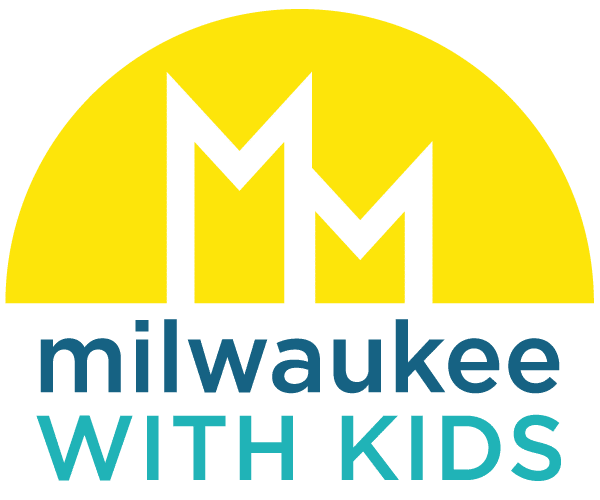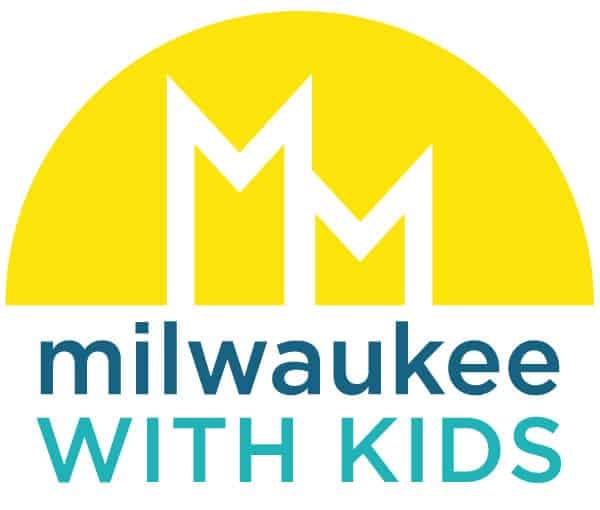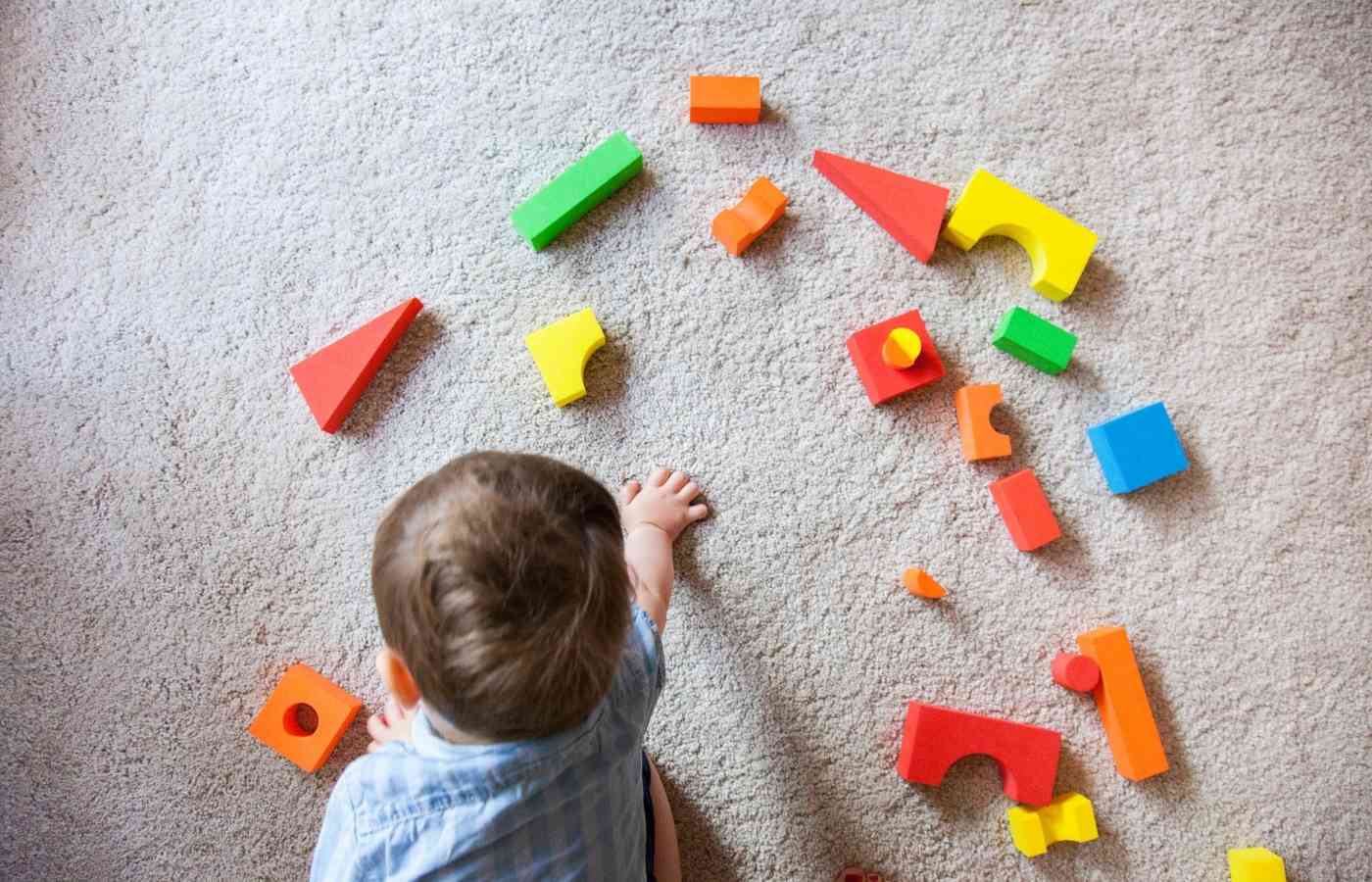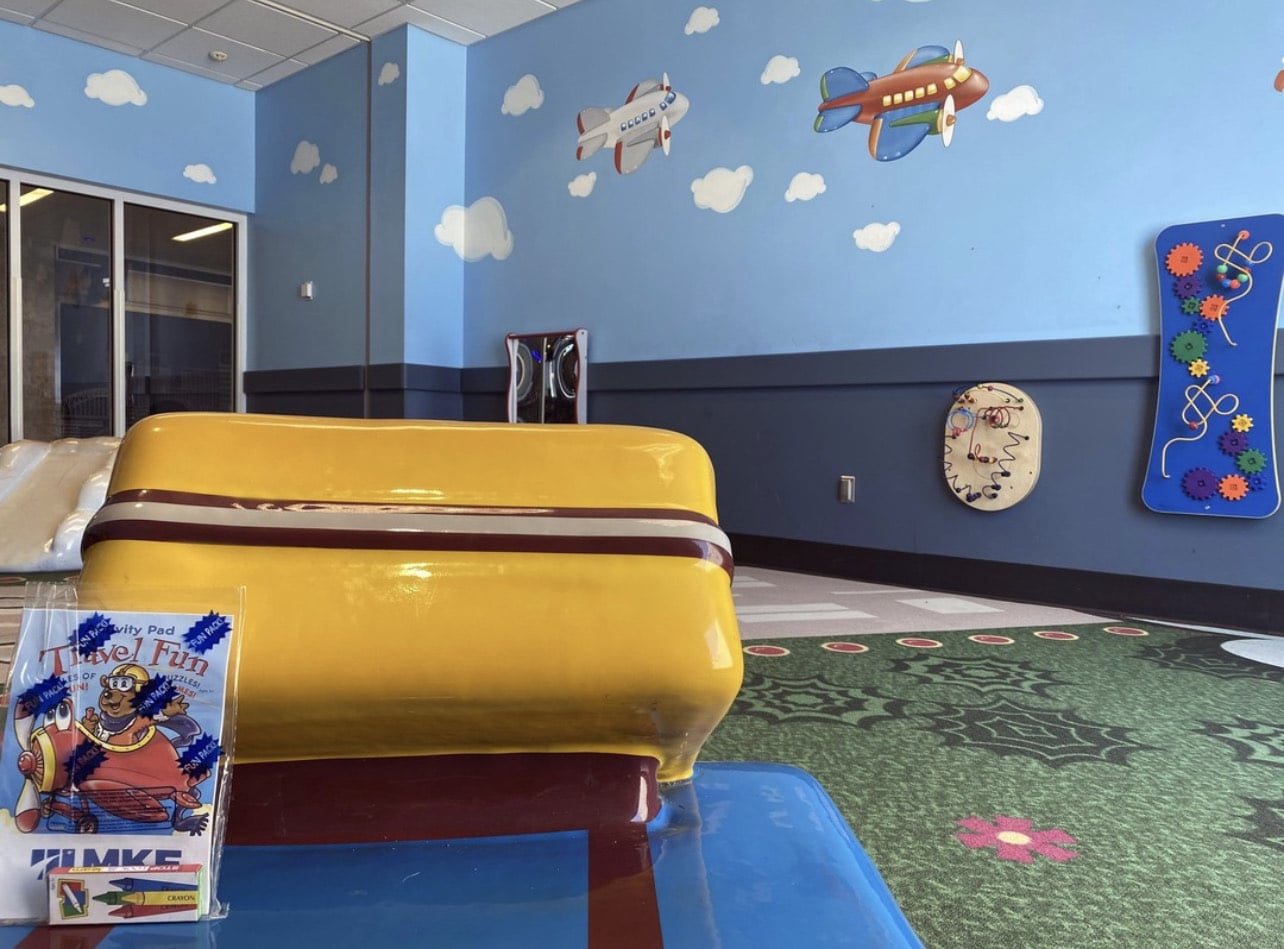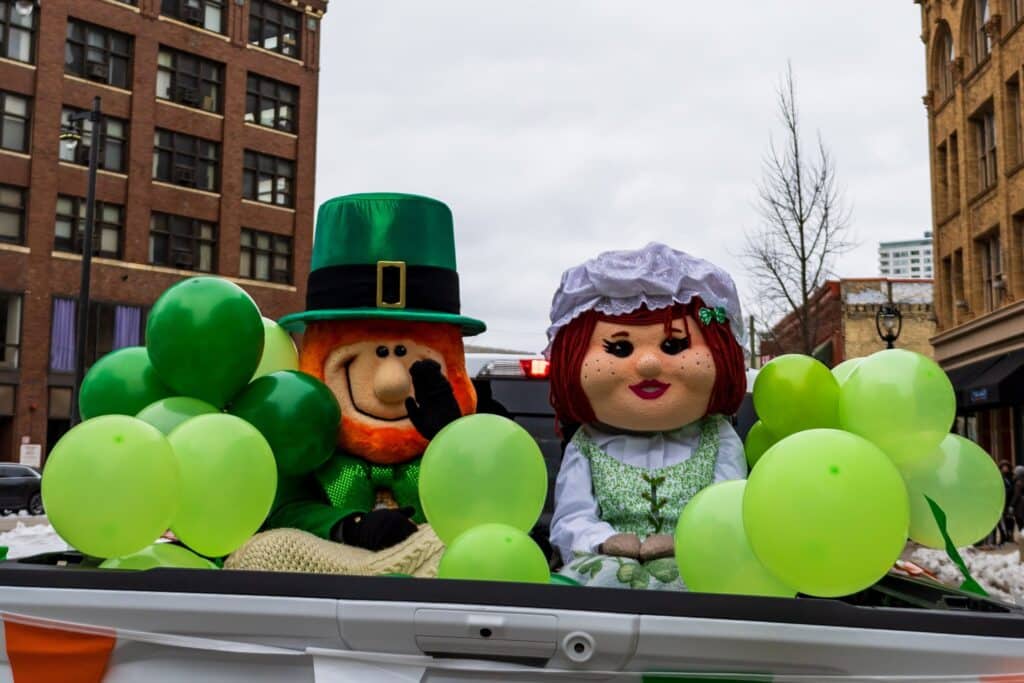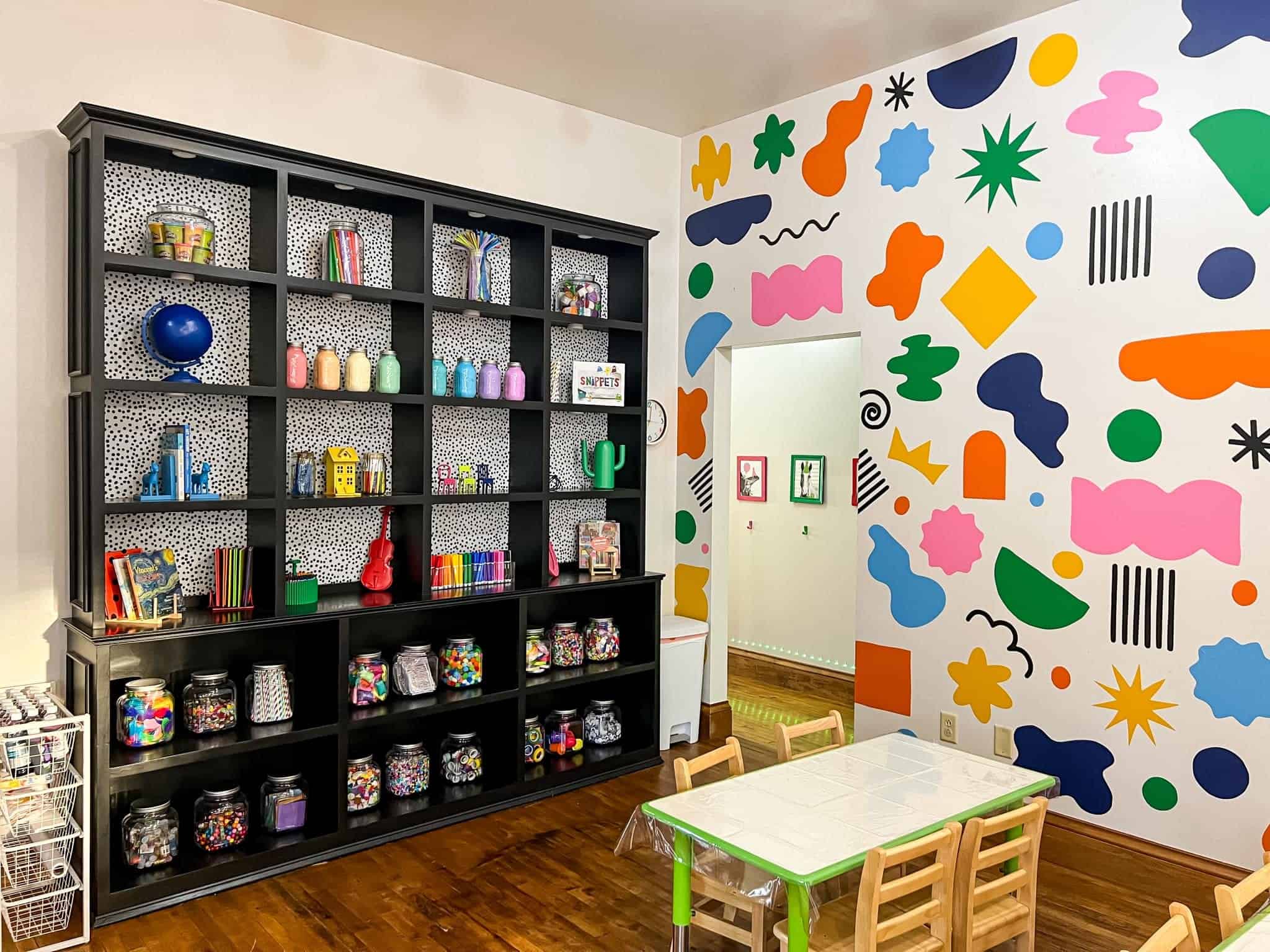Parenthood is a remarkable journey filled with countless magical moments.
However, as any parent knows, keeping a toddler entertained can sometimes feel like a Herculean task.
Their endless energy, insatiable curiosity, and ever-changing moods can leave us parents scrambling for ideas to keep them engaged and content.
But fear not! This blog post is here to lend a helping hand.

We have curated a list of 50 best daily activities that will not only keep your little one happily occupied but also create cherished moments for both of you.
Best of all, these are simple activities that don’t require too much prep on your part.
Our carefully selected activities cater to a variety of interests and developmental stages, allowing you to find something that resonates with your toddler’s unique personality.
Let’s dive in!
There are some affiliate links in this post.
Sample Schedule
Before we get into the list of activity ideas, here is a general daily routine for you and your toddler.
Establishing a daily schedule and consistent routines can provide structure, stability, and predictability for toddlers and young children. While every child and family is unique, here’s a suggested general daily routine for toddlers that can serve as a starting point:
Morning:
- Wake up!
- Change diaper or assist with potty.
- Breakfast time. Here are some easy, low-sugar breakfast ideas for kids.
- Interactive play (building blocks, puzzles, or reading books together)
- Physical activity (dancing, nature walk, stretching/yoga)
Mid-Morning:
- Snack & water
- Focused activities (shape sorting, color matching, sensory play)
- Independent playtime
Lunchtime!
Afternoon:
- Quiet Time / Nap Time
- Healthy Snack & Water
- Creative activities (arts and crafts, playdough, or coloring)
- Active Play (bike ride, park, playground, etc)
Late Afternoon/Evening:
- Healthy Snack & Water
- Free play, screen time, or self-directed activities while you prepare dinner.
- Simple chores or tasks (setting the dinner table, helping clean-up)
- Family Dinner
Bedtime Routine:
- Relaxing activity (warm bath, quiet reading time)
- Change into pajamas and brush teeth
- Dim lights / calm music
- Bedtime story & lullaby
Remember, the is just a sample daily toddler schedule. While a predictable routine is helpful for everyone, flexibility is key as every toddler’s needs and preferences may vary.
Adjust the routine based on your child’s sleep patterns, appetite, developmental stage, interest areas and individual needs. Additionally, allow room for spontaneous play, outdoor exploration, and special family activities.
Without further ado, here are some fun activities to incorporate into your daily routine:
Arts & Crafts
Finger painting
Finger painting allows toddlers to explore and express their creativity through the tactile sensation of paint on their fingertips. It enhances fine motor skills as they learn to control their movements and experiment with different colors and shapes.
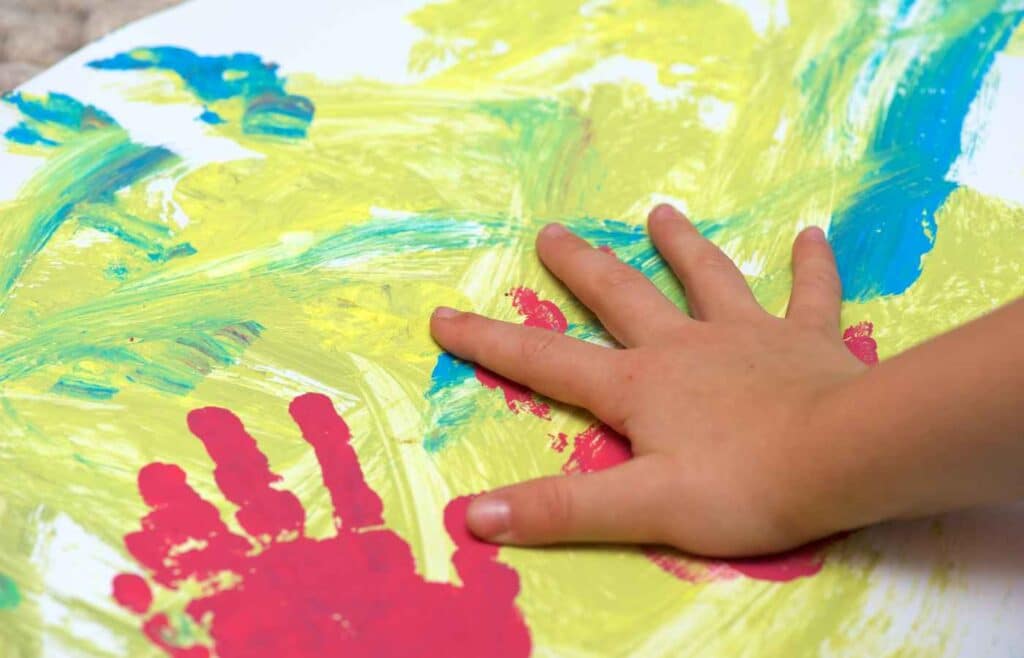
Finger painting also promotes sensory development and can be a therapeutic and calming activity for toddlers.
Playdough
Playdough sculpting encourages imaginative play and fine motor skills development. Younger children can mold and shape the playdough using their hands and various tools, fostering creativity and hand-eye coordination.
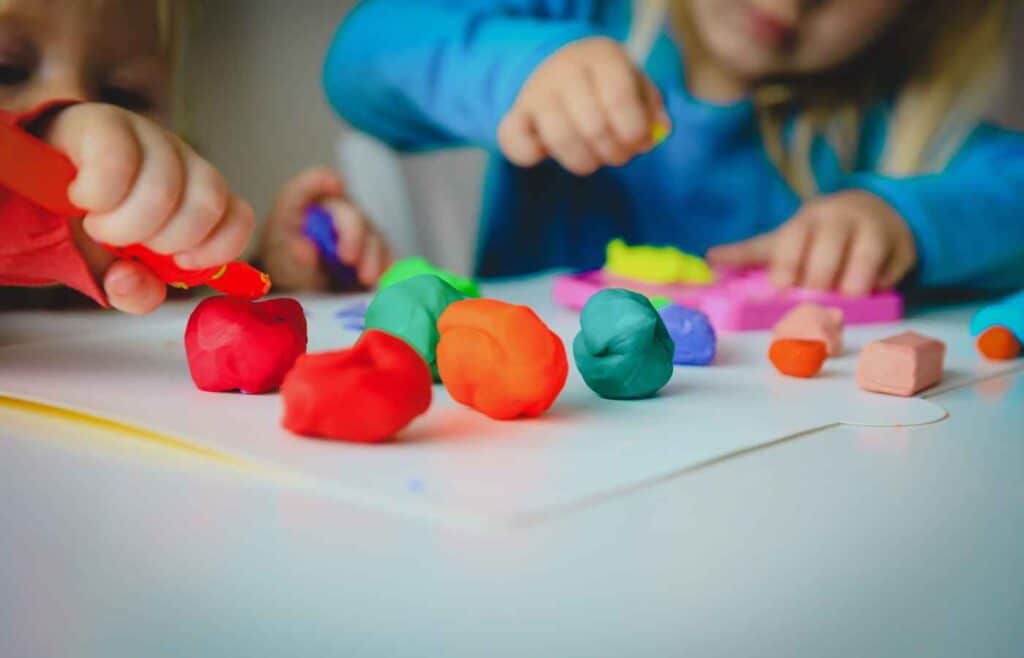
It also provides sensory stimulation through the tactile experience and helps develop strength in their fingers and hands.
Collage making
Collage making involves cutting and pasting different materials like paper, magazine cutouts, and fabric. This activity boosts toddlers’ fine motor skills as they handle scissors, tear paper, and manipulate objects. Collage making also encourages creativity, color recognition, and spatial awareness as they arrange and layer materials to create unique artworks.
DIY Sensory Bottle
Sensory bottles are captivating and educational tools for toddlers. By filling bottles with various materials like colored water, glitter, beads, or small objects, toddlers can explore visual and auditory stimulation, as well as different textures. Sensory bottles can aid in sensory development, calming and focusing attention, and teaching cause and effect.
Outdoor & Active Play
Nature Walk
Nature walks allow toddlers to explore and connect with the natural world. Outside time is imperative and provides opportunities for sensory experiences, learning, and discovery. Toddlers can observe various plants, trees, flowers, insects, and animals, sparking curiosity and a sense of wonder.
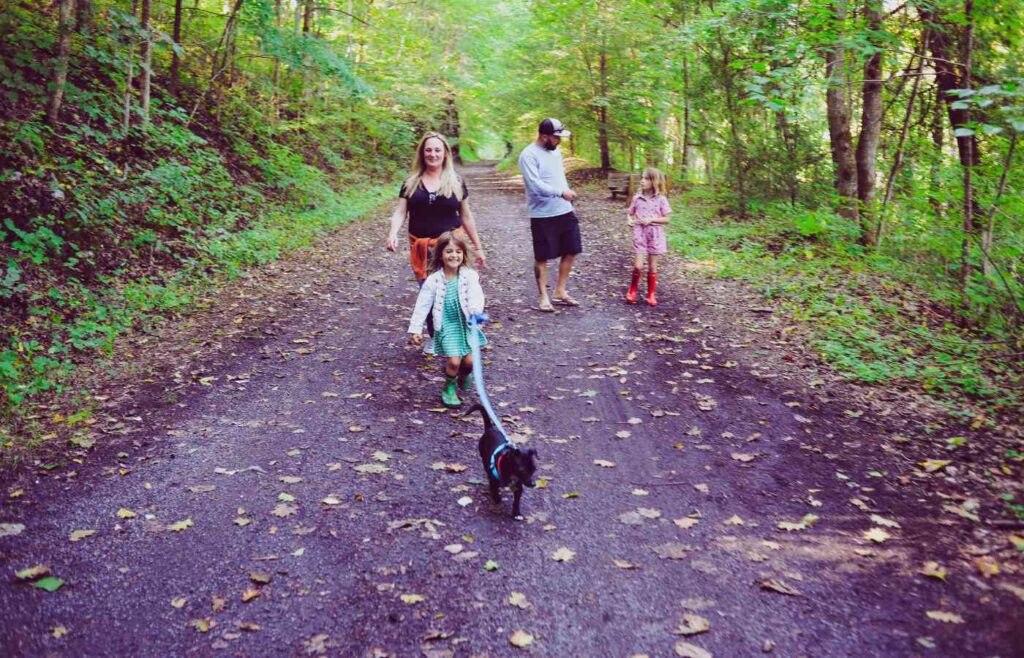
Nature walks promote sensory development, physical activity, cognitive development and stimulation, and an appreciation for the environment.
Sandbox Time
Playing in a sandbox offers tactile and sensory experiences for toddlers. They can build sandcastles, dig, mold, and experiment with different textures.
Sandbox play promotes fine motor skills, hand-eye coordination, imaginative play, and social interaction if done with other children. It provides a sensory-rich environment that encourages exploration and creativity.
Water Play
Water play is a fun and refreshing activity for toddlers, especially during warm weather. It can involve water tables, sprinklers, or even a small kiddie pool. Water play offers opportunities for sensory exploration, hand-eye coordination, and fine motor skills development.

You don’t need to get too fancy with it! Toddlers can pour, scoop, splash, and experiment with water, promoting cognitive and physical development.
Sidewalk Chalk
Sidewalk chalk is a creative and colorful activity for toddlers. They can draw, scribble, and create artwork on sidewalks or paved surfaces. Sidewalk chalk play encourages fine motor skills, hand-eye coordination, and self-expression.
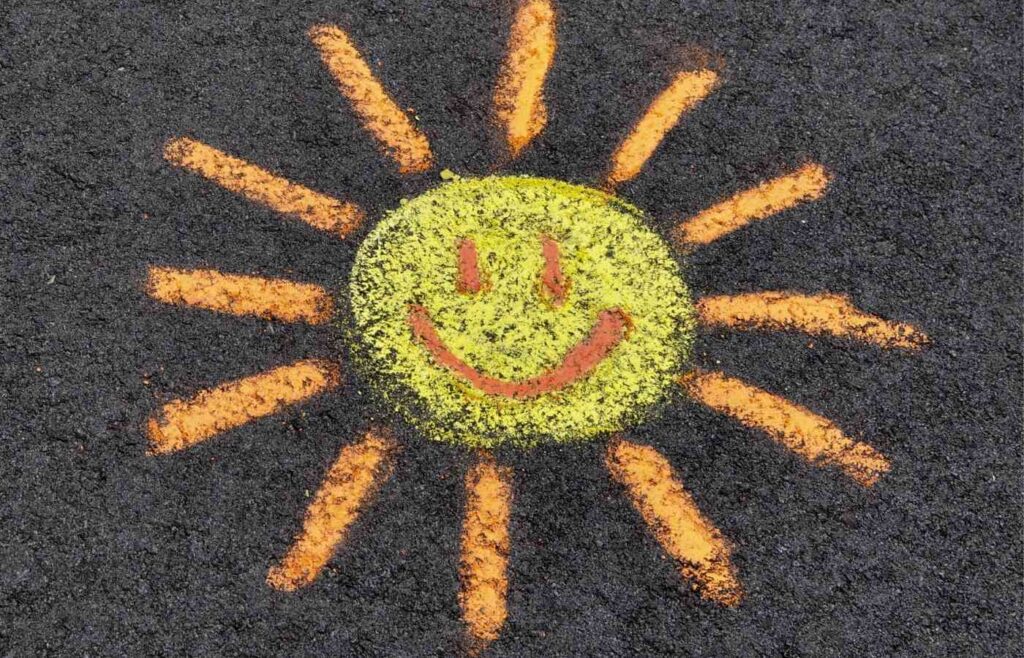
It also provides an opportunity for outdoor play, physical movement, and social interaction if done with others.
Here are 25 fun sidewalk chalk ideas for your kids.
Tricycle Ride
Riding a tricycle allows toddlers to develop their gross motor skills, balance, coordination, and spatial awareness. It promotes physical activity and helps build strength in their legs and core muscles. Tricycle rides offer a sense of independence and freedom as toddlers explore their surroundings. It can be a fun family activity and provides opportunities for outdoor play and bonding.
You can also take your toddler along on bike rides if you have a trailer to hook up to your bike. They’ll love feeling the fresh air in their hair and watching the world go by.
Yoga or Stretching Exercises
Introduce simple yoga poses or stretching exercises suitable for toddlers. Encourage them to mimic the movements and hold the poses for a short duration. Yoga and stretching activities promote body awareness, coordination, flexibility, and relaxation.
Follow-the-Leader Games
Play follow-the-leader with your toddler, taking turns being the leader and mimicking movements. You can incorporate various actions like hopping, clapping, spinning, or crawling. This game develops gross motor skills, coordination, listening skills, and the ability to follow directions.
Gardening and planting seeds
Gardening and planting seeds allow toddlers to connect with nature, learn about plants and the environment, and develop a sense of responsibility. They can help dig holes, sow seeds, water plants, and observe the growth process over time.
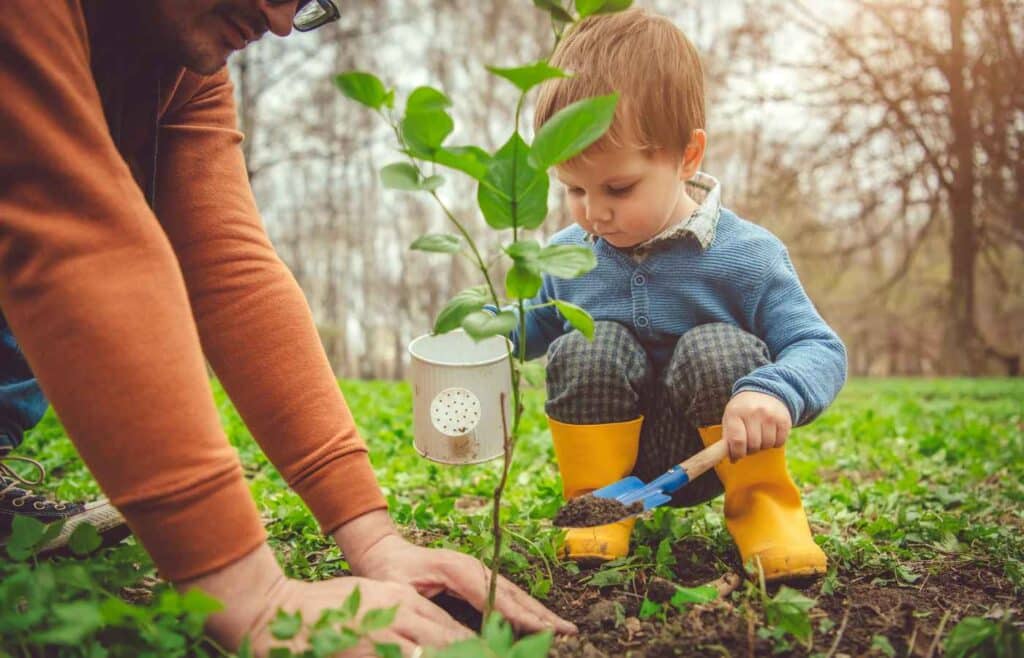
This activity nurtures fine motor skills, patience, and an appreciation for the natural world. It also provides opportunities for sensory exploration and encourages healthy eating habits as toddlers witness the fruits of their labor.
Local Parks & Playgrounds
Take your toddler to a local park or playground where they can engage in active play, explore new environments, and interact with other children. This outdoor activity promotes gross motor skills, coordination, social interaction, and exposure to nature.
Educational
Alphabet Learning Games
Simple alphabet learning games are an engaging way to introduce and reinforce letter recognition, letter sounds, and early literacy skills in toddlers. Here are some simple ways to begin learning about letters:
Alphabet Hunt: Use flash cards or cutouts of letters. Hide the letters around the house or play area and ask your toddler to find them. As they find each letter, encourage them to name the letter and make its sound. This game helps with letter recognition and association.
Letter Tracing: Write letters on a large sheet of paper or use a letter tracing activity sheet. Encourage your toddler to trace the letters using their finger or a marker. This game helps with number formation and familiarity.
Find more alphabet learning games on ABCMouse.com.
Number Learning Games
It’s a good idea to practice numbers as a part of your daily routine. Simple number learning games can be a fun and effective way to introduce and reinforce early numeracy skills in toddlers. Here are a few examples of such games:
Counting Objects: Gather a collection of small objects such as blocks, toys, or buttons. Ask your toddler to count the objects and place them in a line or a group. Start with a small number and gradually increase the count as they become more comfortable. This game helps develop counting skills and one-to-one correspondence.
Number Matching: Create number cards or use foam numbers. Lay them out in a random order and ask your toddler to match them to a corresponding number of objects. For example, placing the number 3 card next to three toy cars. This game reinforces number recognition and quantity understanding.
Number Tracing: Write numbers on a large sheet of paper or use a number tracing activity sheet. Encourage your toddler to trace the numbers using their finger or a marker. This game helps with number formation and familiarity.
Number Hunt: Similar to the alphabet hunt game, hide number cards around the house or play area and ask your toddler to find them. As they find each number, have them identify and say the number aloud. This game promotes number recognition and reinforces numeral association.
Find more on ABCMouse.com.
Simple science experiments
Young toddlers are naturally curious about the world around them! Engaging them in simple science experiments is a fantastic way to foster their curiosity, promote critical thinking, and introduce them to the wonders of the scientific world. Here are a few ideas for simple science experiments suitable for toddlers:
Sink or Float: Gather a variety of objects, such as a toy car, a plastic bottle, a rock, and a sponge. Fill a basin or a tub with water and ask your toddler to predict whether each object will sink or float. Then, one by one, let them drop the objects into the water and observe what happens. This experiment introduces the concept of buoyancy and encourages scientific reasoning.
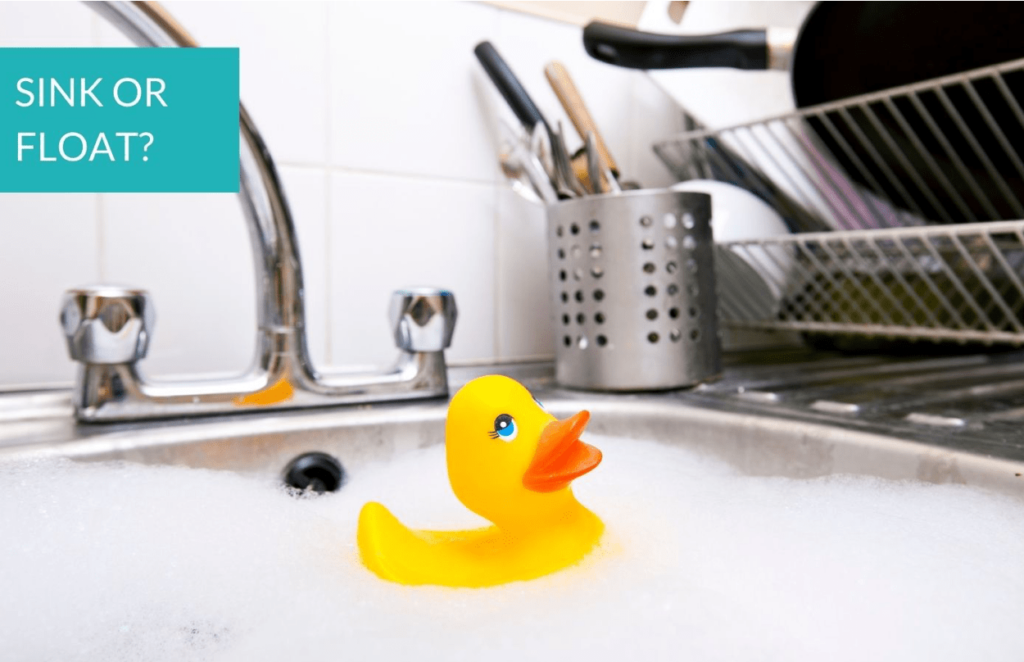
Baking Soda and Vinegar Reaction: Place a small amount of baking soda in a shallow container and give your toddler a dropper or a spoon. Let them add vinegar to the baking soda and observe the fizzy reaction that occurs.
This experiment demonstrates a simple chemical reaction and introduces the concept of cause and effect.
Magnetic or Non-Magnetic: Collect a variety of objects, including some that are magnetic (e.g., paperclips, a small magnet) and others that are not (e.g., a plastic toy, a wooden block). Have your toddler test each object with a magnet to determine whether it is magnetic or non-magnetic.
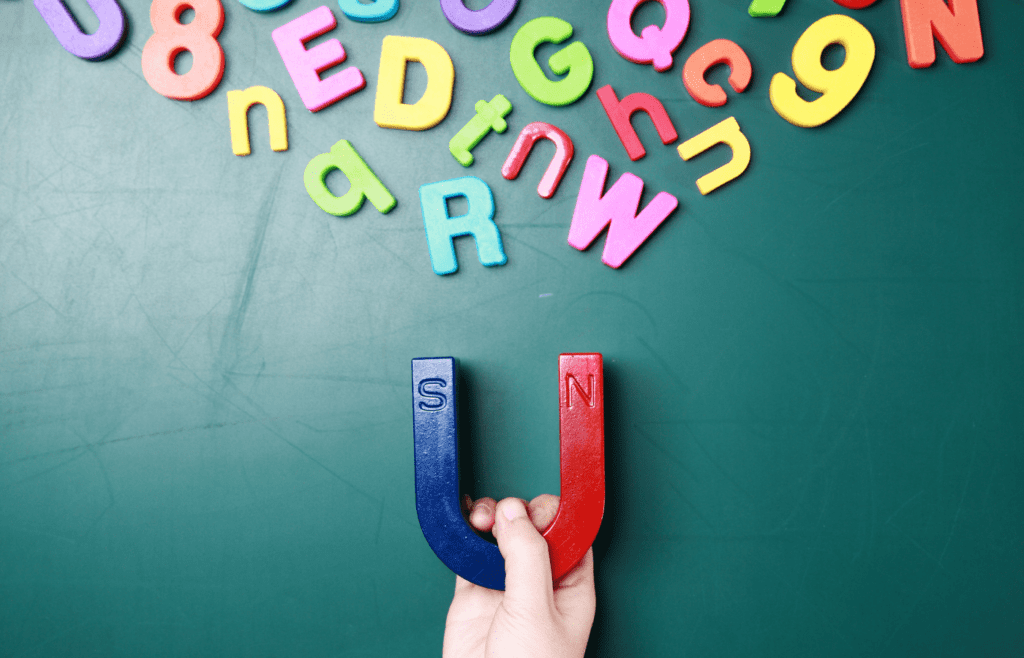
This experiment introduces the concept of magnetism and helps toddlers differentiate between magnetic and non-magnetic materials.
Find more science experiments for kids >>
Shape Practice
Shape practice is an essential early learning activity that helps toddlers develop their visual perception and cognitive skills. Here are a few ways to engage toddlers in shape practice:
Shape Sorting: Provide your toddler with a variety of objects or picture cards representing different shapes. Encourage them to sort and match objects to the corresponding shape. This activity enhances shape recognition and spatial awareness.
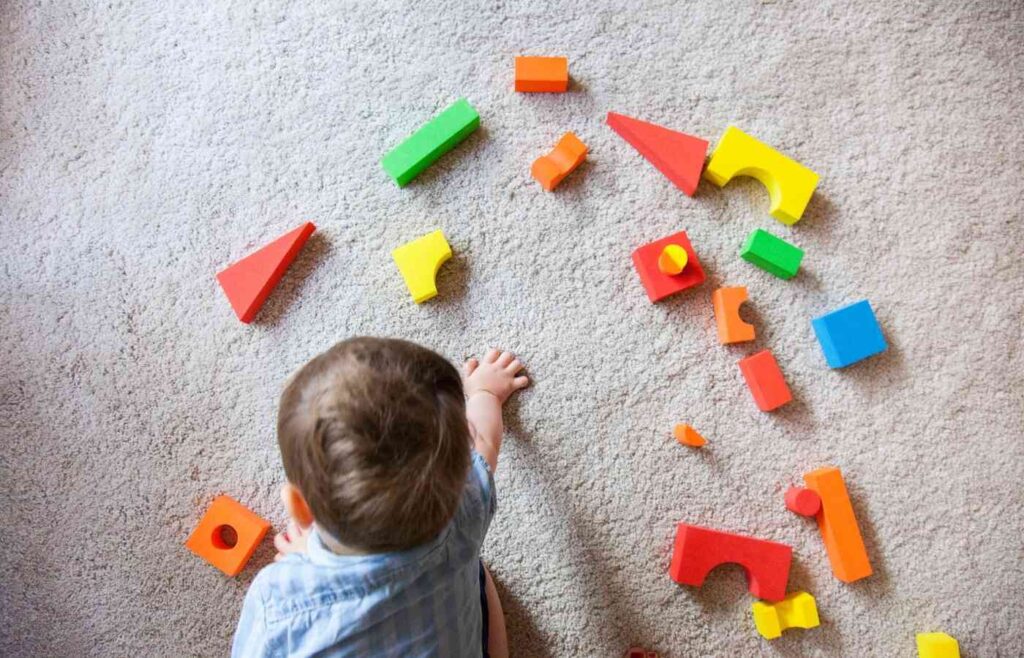
Shape Hunt: Take your toddler on a shape hunt around the house or outdoors. Ask them to find objects that match specific shapes, such as a circular clock or a rectangular book. This activity promotes observational skills and reinforces shape identification in real-world contexts.
Shape Tracing: Draw simple shapes on a piece of paper or use shape stencils. Let your toddler practice tracing the shapes with their finger or a crayon. This activity helps develop fine motor skills and reinforces shape formation.
Find more shape activities for toddlers >>
Color Sorting
Color sorting activities involve sorting objects or items based on their colors. You can provide a variety of objects or picture cards in different colors and ask your toddler to sort them into corresponding color groups. This activity helps develop color recognition, categorization skills, and visual discrimination.
Puzzles
Puzzles are excellent for promoting cognitive skills and problem-solving abilities. Choose age-appropriate puzzles with larger pieces for your toddler. They can work on matching shapes, assembling pictures, or solving simple jigsaw puzzles. Puzzles enhance spatial awareness, fine motor skills, concentration, and logical thinking.
Read a Book
Reading books is a valuable activity for toddlers that supports language development and imagination. Choose books with colorful illustrations and engaging stories suitable for their age. Read aloud to your toddler, pointing out pictures, describing objects, and encouraging their participation. Reading books nurtures vocabulary, listening skills, comprehension, and a love for reading.
Musical
Dance Party
A dance party is a fun and energetic activity that allows toddlers to move, groove, and express themselves. Play their favorite music and encourage them to dance freely.
Dancing enhances gross motor skills, coordination, rhythm, and body awareness. It also promotes physical fitness and can be a bonding experience for the whole family.
Here are some great dance song for kids >>
Musical Instrument Exploration
Allow your toddler to explore various musical instruments, such as drums, shakers, xylophones, or keyboards. Let them experiment with the sounds and rhythms they can create. This activity promotes sensory development, fine motor skills, auditory discrimination, and a love for music.
Nursery Rhyme Sing-alongs
Singing nursery rhymes together with your toddler is a great way to enhance their language development, memory, and rhythm. Teach them popular nursery rhymes and encourage them to join in the singing. This activity supports language skills, phonemic awareness, and social interaction.
Sensory
Sensory Bins
Create sensory bins by filling a container with rice, sand, or other sensory materials. Add small toys, scoops, and cups for your toddler to explore and manipulate. Sensory play promotes fine motor skills, sensory development, creativity, and imaginative play. Here are some ideas for sensory activities:
Colored Rice Bin: Dye uncooked rice with food coloring by placing rice and a few drops of food coloring in a resealable bag and shaking it until the rice is evenly colored. Place the colored rice in a shallow bin or tray and provide scoops, cups, and small toys for sensory exploration and play.
Cloud Dough Bin: Mix flour and baby oil in a ratio of 8 parts flour to 1 part oil to create a soft and moldable sensory material known as cloud dough. Place it in a bin along with cookie cutters, cups, and utensils for your toddler to explore and manipulate.
Shaving Cream Bin: Fill a shallow bin with a layer of shaving cream and encourage your toddler to squish, swirl, and create patterns in the foam. They can also use fingers or paintbrushes to draw or write in the shaving cream.
Sensory Nature Bin: Fill a bin with natural materials like leaves, pinecones, rocks, or shells. Allow your toddler to touch, sort, and explore the textures and shapes of these natural objects. This sensory bin can be combined with other elements like small toy animals or figurines for imaginative play.
Oobleck Bin: Mix cornstarch and water in a ratio of 2 parts cornstarch to 1 part water to create oobleck, a non-Newtonian fluid with unique properties. Let your toddler squish and explore the oobleck, which behaves like a solid when pressure is applied and like a liquid when left alone.
Bubbles
Blow bubbles and let your toddler chase and pop them. This activity enhances visual tracking skills, hand-eye coordination, and cause-and-effect understanding. Bubbles also provide a playful and magical experience for toddlers.
Kinetic Sand
Kinetic sand is a moldable and sensory material that can provide hours of fun for toddlers. They can shape it, squeeze it, and build structures. Playing with kinetic sand supports fine motor skills, sensory exploration, and imaginative play.
Social
Playdates
Arrange play dates with other toddlers or children in your community. This allows your toddler to interact, socialize, and engage in cooperative play with their peers.
Playdates provide opportunities for sharing, turn-taking, and developing social skills.
Here are some playdate ideas to keep it fresh!
Imaginative
Dress-up
Dress-up and role play allow toddlers to use their imagination and creativity. By dressing up as different characters, such as superheroes, princesses, or animals, they can act out stories and scenarios, developing their social and emotional skills.
It also encourages language development as they engage in pretend conversations and narratives.
Puppet Show
Puppet shows and storytelling foster language development and communication skills in toddlers. By using puppets or creating characters with everyday objects, toddlers can engage in storytelling, express their thoughts and emotions, and practice narrative skills.
It also enhances their attention span, imagination, and listening comprehension.
Storytelling
Storytelling is a wonderful activity that engages a toddler’s imagination and language skills. Parents or caregivers can read books aloud or create their own stories, incorporating interactive elements like sound effects or gestures.
Storytelling promotes language development, listening comprehension, cognitive skills, and creativity. It also provides an opportunity for bonding and quality time between the toddler and the storyteller.
Pretend Kitchen
Pretend kitchen play allows toddlers to mimic real-life situations and develop important life skills. They can engage in role-playing as chefs, cooks, or kitchen helpers. Pretend kitchen activities involve using play food, utensils, and kitchen appliances.
This activity encourages imaginative play, creativity, language development, social interaction, and fine motor skills as toddlers engage in food preparation, cooking, and serving.
Tea Party
Hosting a tea party is a delightful pretend play activity that promotes social skills and creativity. Toddlers can set up a pretend tea table with teacups, saucers, plates, and play food. They can invite their stuffed animals, dolls, or family members to join the tea party.
This activity encourages imagination, social interaction, sharing, and practicing manners. It also provides an opportunity for vocabulary development as toddlers engage in conversations and role-play scenarios.
Teddy bear picnic
Teddy bear picnics create opportunities for imaginative play and socialization. Toddlers can invite their favorite stuffed animal or doll to a picnic, setting up a pretend outdoor gathering with snacks and activities.
This activity encourages creativity, storytelling, and role-playing, while also fostering empathy and nurturing skills as they care for their toys.
Screentime
Whether you need interactive games, educational videos, or academic help these educational websites will definitely help.
Some of the websites even offer lesson plans for homeschooling parents and teachers.
All of them are completely free! (With the one exception of ABC Mouse, which I love anyways.)
Creating a daily routine for your toddler that includes a variety of fun activities is a wonderful way to promote their growth, development, and happiness.
By incorporating engaging and enjoyable activities into their day, you not only provide entertainment but also foster their cognitive, physical, and social skills.
From imaginative play and sensory exploration to outdoor adventures and creative pursuits, these fun activities create lasting memories and contribute to your toddler’s overall well-being and joy.
Related Posts
Best Car Activities for Toddlers
Best Travel Activities for Toddlers
Best Games for Family Game Night
100 Best Indoor Activities for Your 14 Month Old
50 Best Activities for Your 17 Month Old
Calie Herbst, Editor-in-Chief of Milwaukee With Kids, has spent over a decade combining her experiences as a parent of three to create a hub for Milwaukee’s family adventures.
Her decade-long teaching career in Milwaukee Public Schools and academic background, including a Master’s in Teaching from Marquette University and dual B.A.s in Sociology and Spanish from the University of Wisconsin – Madison, fuel her passion for inclusive and engaging family content.
Calie is also a recognized voice in local media, contributing to WISN Channel 12 News, WTMJ Wisconsin Morning News, Fox 6’s Real Milwaukee, and B93.3.
Discover more about Calie’s journey and editorial approach on her About Page and Editorial Policy Page.
